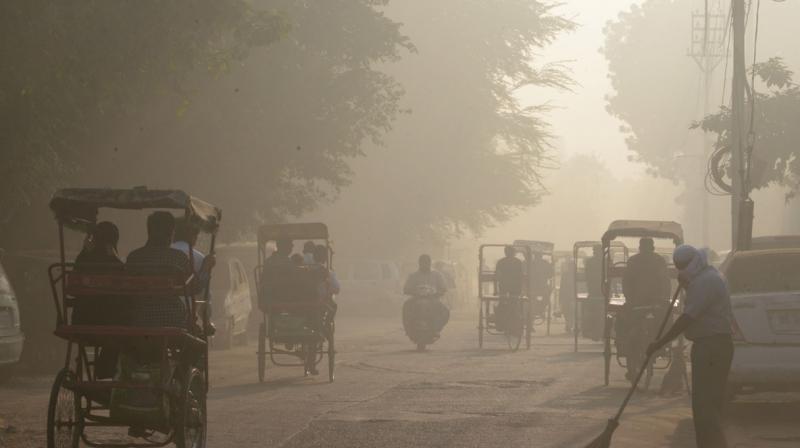Lagatar24 Desk
Ranchi, April 7: Today is World Health Day, which commemorates the founding of the World Health Organization on April 7, 1948. Every year, a subject for the day is chosen, and this year’s theme is “Our Planet, Our Health.”
According to WHO, the coronavirus pandemic, pollution, and an increase in disease incidence influenced the choice of this issue.
Interestingly, World Health Day will be observed for the 72nd time this year. It is no secret that our planet has altered dramatically in terms of how it affects our health. This year, we recognise not only the negative consequences of unhealthy habits, but also how our planet’s health affects ours.
“The World Health Organization estimates that more than 13 million people die each year due to preventable environmental causes around the world. This includes the climate problem, which is the world’s single greatest health concern.
As part of a “Our planet, our health” campaign celebrating the organization’s birth day, which falls at a time of heightened conflict and fragility, WHO is issuing an urgent demand for expedited action by leaders and all people to maintain and protect health and mitigate the climate disaster.
This is how, ‘The climate emergency is also a health emergency’:
 Global warming: The progressive rise in the temperature of the climate has been shown to have a negative impact on our health. Low-income people are the hardest hit, since they lack the simplest basics to protect themselves from the scorching heat. Heat strokes and even death can result from prolonged exposure to this level of heat.
Global warming: The progressive rise in the temperature of the climate has been shown to have a negative impact on our health. Low-income people are the hardest hit, since they lack the simplest basics to protect themselves from the scorching heat. Heat strokes and even death can result from prolonged exposure to this level of heat.
The possibility of wildfires has grown as the temperature of the climate has risen. Wildfires have a negative impact on both the flora and fauna of the impacted areas.

Water pollution: When industrial waste is improperly disposed of, it pollutes the land and water. It not only causes individuals to become unwell, but it also degrades soil quality and turns it barren over time.

Depleting air quality: The quality of the air has deteriorated dramatically, and around 90% of people around the world are exposed to it. Health specialists have compared the air quality in India’s main cities to smoking cigarettes. It’s also important to recognise that poor air quality is caused by a variety of factors. Increased car traffic, smoke emitted by industries, and wildfires, to name a few, all contribute to air quality degradation.
Increasing pollution and global warming had resulted in diseases like:
Asthma: Air pollution is one of the leading causes of asthma. It not only causes asthma, but it also makes it harder for those who already have asthma to operate normally in their daily lives. Inhaling polluted air is unpleasant in and of itself, but for those with asthma, this is made worse by the swelling and constriction of the airways.
Cancer: It has recently been established that certain types of cancer are caused by air pollution. In patients who already have cancer, this could make their sickness and recovery worse due to a weakened immune system.
Waterborne diseases: Drinking dirty water can cause a variety of waterborne illnesses. Another factor could be the presence of dangerous compounds in the water, such as lead and mercury. Typhoid, diarrhoea, hepatitis, liver damage, cancer, and other disorders can all result from this.
Climate crisis is a biggest health crisis, therefore it is important to protect our planet in order to protect health.






